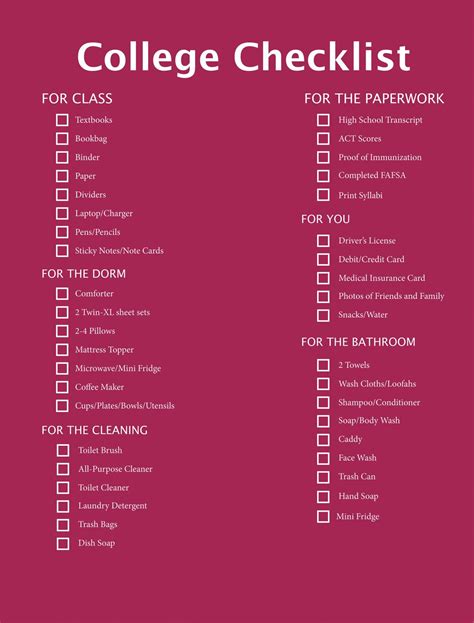Choosing the right college is a big decision. It’s important to find a school that’s a good fit for your academic, social, and financial needs. To help you narrow down your options, we’ve put together a checklist of things to consider.

Academic Considerations
- Accreditation: Make sure the college is accredited by a reputable organization, such as the Higher Learning Commission or the Southern Association of Colleges and Schools. Accreditation ensures that the school meets certain academic standards.
- Programs of study: Research the college’s academic programs to make sure they offer what you’re interested in studying. Consider the size and reputation of the program, as well as the faculty and resources available.
- Faculty: Get to know the faculty who will be teaching your classes. Read their bios, attend their office hours, and talk to other students who have taken their classes. Good faculty can make a big difference in your learning experience.
- Class size: Consider the average class size at the college. Smaller class sizes can provide more individualized attention from professors, while larger class sizes can offer more opportunities for collaboration and discussion.
- Graduation rate: The graduation rate indicates the percentage of students who complete their degree within six years. A high graduation rate suggests that the college provides the resources and support students need to succeed.
Social and Cultural Considerations
- Campus culture: Visit the campus to get a feel for the social and cultural environment. Talk to students, attend events, and observe the interactions between students and faculty. Is the campus diverse? Welcoming? Supportive?
- Student organizations: Get involved in student organizations to meet new people, make friends, and pursue your interests. Research the college’s student organizations to see if there are any that match your interests.
- Athletics: If you’re interested in playing sports, research the college’s athletic programs. Consider the level of competition, the facilities, and the coaching staff.
- Greek life: If you’re interested in joining a fraternity or sorority, research the college’s Greek life system. Consider the size and reputation of the Greek organizations, as well as the cost of joining.
- Location: Consider the location of the college. Do you want to be in a big city, a small town, or somewhere in between? How close is the college to home? Will you be able to afford to visit home regularly?
Financial Considerations
- Tuition and fees: Tuition and fees are the biggest expense you’ll incur during college. Research the cost of tuition and fees at different colleges and compare them to your budget.
- Financial aid: Explore all of your financial aid options, including scholarships, grants, loans, and work-study programs. The more financial aid you can get, the less you’ll have to pay out of pocket.
- Return on investment: Consider the return on investment (ROI) of your college education. How much will you earn after you graduate? Will your salary be high enough to cover the cost of your education?
- Debt: If you need to take out student loans to pay for college, make sure you understand the terms of your loans. How much will you have to pay back each month? How long will it take you to pay off your loans?
Other Considerations
- Personal fit: Ultimately, the best college for you is the one that’s a good fit for your personality, interests, and needs. Visit different colleges, talk to students and faculty, and get a feel for the campus culture before making a decision.
- Gut instinct: Sometimes, your gut instinct is the best guide. If you have a strong feeling about a particular college, don’t ignore it. Trust your instincts and choose the college that feels right for you.
Choosing the right college is a big decision, but it’s also an exciting one. By taking the time to research your options and consider all of the factors involved, you can make an informed decision that will help you reach your goals.
